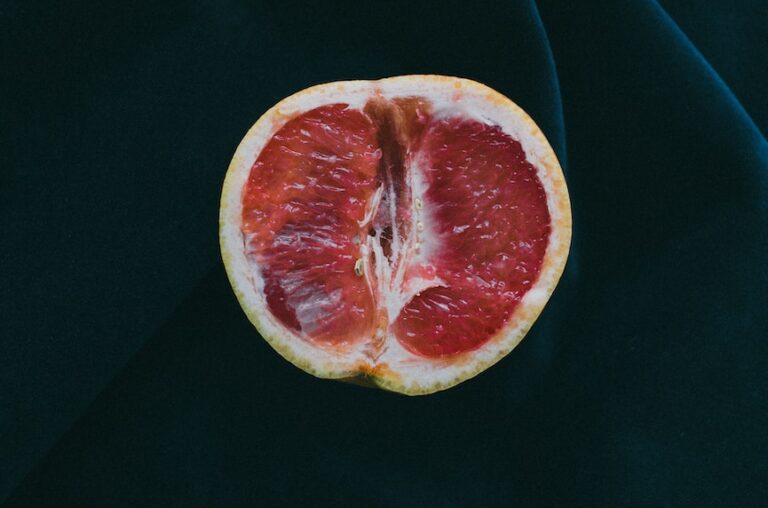Women often experience a sore vagina after sex, especially if there wasn’t enough lubrication. This is called vaginitis.
Your vulva includes your pubic mound, the inner and outer labia, and the clitoris. Vaginitis can be caused by bacteria, yeast, or chemicals in creams and sprays. It can also happen from infection or reduced estrogen levels during menopause.
Causes
Some common causes of a sore vagina include a yeast infection (when there’s an overgrowth of a one-celled organism called Candida), bacterial vaginosis, or endometriosis. You may also experience pain in and around the vulva if you’ve had rough sex that caused too much friction or you’re not using enough lubrication.
A sore vulva can also happen if you have an injury to your vulva or pelvic floor, a health condition like lupus or diabetes that affects your nervous system, or after childbirth. Some people develop a muscle spasm in the vulva area that’s called vaginismus. The pain from this condition can last for weeks after birth, after sex or sexual activity, or as a result of injury to the vulva.
Many of the things that can cause a sore vulva or vagina are treatable or preventable – These words are the creation of the website’s specialists https://3dsexclub.com. To help keep your vulva healthy, avoid douching and use tampons or pads only as directed. Choose tampons or pads that are made of cotton and avoid those with perfumes and preservatives. Wear loose-fitting pants or underwear that don’t chafe the vulva.
If you have a sore vagina, it’s important to see a doctor or nurse as soon as possible for diagnosis and treatment. A healthcare professional will gently open your vagina and examine it with a smooth, tube-shaped tool called a speculum. They might also swab the inside of your vulva with a small cotton bud (swab) to check for infections.
Treatment
There are a wide range of conditions that can affect the vagina and vulva, causing pain, itching or other symptoms. Some, like a yeast infection or candida (thrush) can be treated with over-the-counter medications. But it’s important to see your doctor if your symptoms don’t improve after trying an over-the-counter treatment or if they come back.
Some sexually transmitted infections, such as gonorrhoea, chlamydia and trichomoniasis can cause vulval and/or pelvic pain. If left untreated, these infections can also damage the reproductive system and lead to infertility. STIs can also be silent, which means they may have no symptoms at all at first. So make sure to get regular STI checks and use condoms during sex.
A bladder infection called bacterial cystitis can also cause itching, swelling and a burning feeling in the vulva and anus. It happens when bacteria from the genital area enters the bladder through the urethra and grows. If it’s mild, you might only need lots of fluids to flush the infection away, but severe cystitis can require antibiotics.
If your vulva feels sore or itchy chronically, you might have a condition called vulvodynia. Your healthcare provider can recommend treatments, including exercises and pelvic floor physical therapy that help strengthen the muscles in your vulva. They can also prescribe creams or ointments that can numb your vulva (anesthetics) or stabilize nerves, and oral medication that reduces pain.
Prevention
Vaginal itching and a burning feeling can be symptoms of sexually transmitted infections such as trichomoniasis, chlamydia or herpes. Itching can also be caused by a yeast infection, called candidiasis or thrush (candidiasis). These can all be treated with antifungal medicine.
A burning sensation in the vulva may also be a sign of an allergic reaction to certain things, like condoms or lubricants. Or it could be a sign of some other condition, such as an autoimmune skin condition called lichen sclerosus or psoriasis, which can cause red patches on the vulva and elsewhere on the body.
Other causes of vaginal itching and pain include chemical irritants from perfumed soaps, feminine products, wipes, douches and sprays. Too much friction, rubbing or chafing can also make your vulva itchy. This can happen if you wear tight underwear, for example, or sit in a hot bath or in a whirlpool spa for long periods of time.
Regularly washing your genital area with unscented mild soap and water can help prevent irritation. Drying the area thoroughly after bathing can also reduce irritation, as can wearing loose cotton underwear. Wiping from front to back after using the toilet can lower your risk of spreading fecal bacteria to your vulva. Estrogen therapy and personal lubricants can also reduce your chance of getting infectious vaginitis.
Home Remedies
Home remedies for vaginal itching include applying a cold compress (wrapped in a towel to avoid ice burn) or rinsing the vulva area with cold water. These remedies work by numbing the area and reducing inflammation. Alternatively, you can try washing the vulva area with sprigs of basil leaves or a basil-based herbal tea to reduce itching. Basil contains eugenol, a chemical that numbs the nerve endings that cause itching. This herb also has anti-fungal and antibacterial properties that can help treat infection.
Another home remedy is to use coconut oil on the vulva. This kitchen staple has antifungal and antibacterial properties that can kill the yeast that causes itching in this region. This is a good alternative to anti-fungal creams, which can be toxic to the female reproductive system.
Finally, you can use yoghurt to reduce itching and improve the health of the vulva. Yoghurt contains probiotics that can kill bad bacteria and boost the number of good bacteria in your vulva. You can also add a spoonful of apple cider vinegar to your vulva wash or apply this mixture directly on the vulva.
Hormonal changes are a common cause of itching in the vulva. This can occur due to pregnancy, perimenopause, menopause or an increase in estrogen levels. You can get relief by identifying and eliminating any irritants that may be causing itching such as a new soap, lotion, food or laundry detergent.
See Also:


